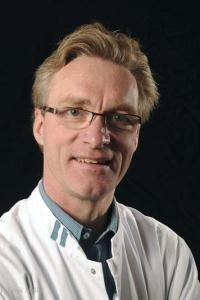
CHAIRPERSON-ELECT
Gerard Rongen was born in Breda on March 5th 1965. He was trained as a medical doctor at the University of Nijmegen where he received his MD in 1990 (with honor). He subsequently did his PhD at the department of General Internal Medicine on the clinical vascular pharmacology of adenosine and ATP (1996, with honor) and a post-doc fellowship at the department of Cardiology of Mount Sinai Hospital, Toronto, Canada (adenosine-elicited sympatho-excitation). Back in the Netherlands, he finished his specialty in Internal Medicine in 2000 and in Clinical Pharmacology and Vascular Medicine in 2001-2002. He received a Royal Academy of Arts and Sciences fellowship and an Established Clinical Investigator Fellowship from the Dutch Heart Foundation to study the clinical (vascular) pharmacology of purines and ischemia-reperfusion injury in humans. He is appointed half-time at the department of Internal Medicine and half-time at the department of Pharmacology-Toxicology. In 2005, he received the prestigious dutch Galenus prize for his studies on the actions of adenosine and dipyridamole on ischemia-reperfusion injury in humans. In 2011, he accepted a position as Professor in Translational Cardiovascular Research at the Radboudumc in Nijmegen, the Netherlands.
As a member of the board of the Dutch Society for Clinical Pharmacology and Biopharmacy and one of the organizers of the annual FIGON-Dutch Medicines Days, he regards as his mission to improve the synergy between the various Dutch scientific societies, public and commercial partners who are involved in development of new pharmaco-therapeutic strategies and optimization of current pharmacotherapy in terms of efficacy and safety.
Within the Radboud University Nijmegen Medical Centre, he chairs the research theme ‘Vascular Damage’.
He is married with Henny Hesselmans and together with their three children (Sjoerd, Lieke and Vera), he tries to spend as much time as possible to play music (violin), to sing (two choirs), to run, to hike and to travel.
